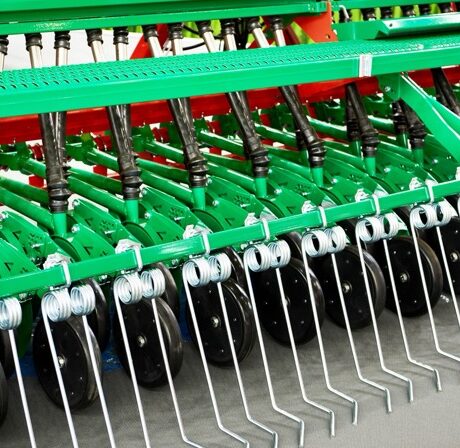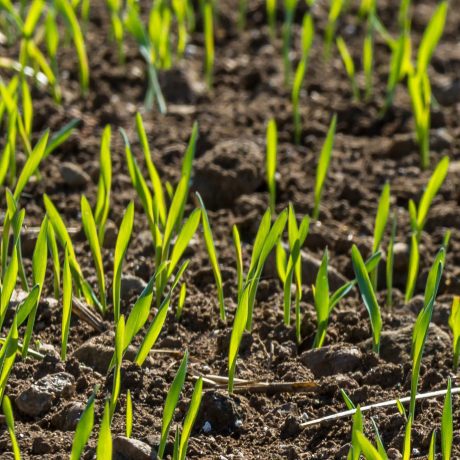Prioritising Safety for Students and Seasonal Workers During Harvest
Robert Gazely
Jul, 24 2025As we mark Farm Safety Week—an initiative led by the Farm Safety Foundation —it’s a timely reminder that safety on farms is a year-round responsibility. However, it becomes especially critical during harvest, when many businesses employ new people to support operations, and various areas of risk are either heightened or newly introduced. This often includes students and seasonal workers, who may be inexperienced or unfamiliar with the working environment, fixed equipment, machinery, and safe systems of work.
As harvest continues, Ceres Rural urges all farm businesses to review and reinforce their safety protocols — especially when welcoming students and seasonal workers into the business.
Health and Safety Inductions for Seasonal Workers on the Farm
From a health and safety perspective, it’s essential to carry out a thorough induction and ensure that every new individual has the necessary information, instruction, training, and supervision to work safely.
These newcomers may be unfamiliar with the working environment, how way risks are managed, and the layout of buildings, farmyards, and machinery. There’s no fault or shame in that — we’ve all started somewhere. But the responsibility lies with the business and employer to ensure these individuals are properly introduced to the environment and equipped with the competence and knowledge needed to carry out their duties safely.
Here’s our 10-point plan to help you manage Health and Safety for new workers during harvest:
1.Fixed Equipment
Ensure all grain handling systems — intake pits, elevators, conveyors, dryers, stores, and silos — are safe, fully guarded and clearly explained during induction. New workers may not recognise hazards like dust build-up, confined spaces, poor lighting, or asbestos risks. Ventilate confined spaces thoroughly, prove a breathable atmosphere before entry, and ensure only trained individuals with suitable and appropriate respiratory and personal protective equipment enter confined spaces.
2. Machinery
Implement a pre-flight check mentality of visually inspecting machinery before use. Emphasise the importance of keeping machinery cabs free of loose tools and wearing parts. Never assume prior experience — demonstrate safe operation and highlight emergency stop procedures. Explain the critical importance of disengaging PTOs before leaving the cab and allowing sufficient rundown time before approaching implements or threshing mechanisms inside the combine harvester. Introduce students and seasonal workers to systems for recording machinery safety checks, servicing, repairs and maintenance that are undertaken.
3. Trailers
Ensure trailers are maintained in an efficient state, in efficient working order and in good repair, as required by the Provision & Use of Work Equipment Regulations 1998 (PUWER). Explain the importance of trailer safety to new workers, particularly when reversing and operating hydraulic tailgates, and the hazard posed by overhead power lines when tipping. Test trailers for braking efficiency (those with design speeds of up to 40kph should have at least 25% service braking efficiency and those with design speeds of over 40kph should have at least 45% service braking efficiency) and consider the use of the Head to Tow trailer safety app for reference.
4. Gateways
Clear vegetation around gateways and junctions to improve visibility and expose hidden features including ditches, gate posts, and manholes. Make sure students and seasonal workers know where field access points are (identify these by their What3Words locations if necessary) and how to enter and exit safely — especially if they’re unfamiliar with the layout.
5. Overhead Power Lines
Provide maps of overhead lines, explain the risks clearly, and map these into on-board systems such as JD Link or Omnia with an associated buffer zone. Display machinery height limits in cabs and ensure new workers understand activities that are prohibited within the 10m buffer zone, such as unloading the combine harvester, stacking bales and tipping trailers. Include emergency procedures in their induction and explain how to contact the local network distribution operator (dial 105) as well as how to disembark machinery safely in the event of coming into contact with an overhead power line.
6. Bales
Demonstrate how to handle and stack bales securely. New workers may not realise the risks of unstable stacks or overloaded trailers. Carry out a secondary check of loaded bale trailers before leaving the field, as bales will often move and consolidate on the trailer when driving across uneven ground. Follow HSE guidance INDG125, supervise bale handling closely, and display signs around stacks warning of the risk of falling bales.
7. Fire
Even in damp seasons, dry spells can create fire risks. Train new workers on fire prevention, use of fire sticks and extinguishers and sources of water, but stress the need to evacuate safely and leave fire fighting to the emergency services. Remember that farm employees are likely to lack the instruction, training, competence, respiratory and personal protective equipment to safely and professionally fight fires. Crops and machines can be replaced – people can’t! Show them how to use What3Words to report incidents accurately and avoid storing bales near roads.
8. Vehicles & Pedestrians
Clearly mark and explain segregated routes. New workers may not be aware of safe Stop procedures or the dangers of moving machinery. Reinforce the importance of staying alert and maintaining safe distances. Consider implementing an appropriate policy around the wearing of high visibility clothing, and train grain store operators only to stand in locations where they can clearly be seen by tractor and trailer drivers.
9. Children
With school holidays underway, remind all workers — especially those new to the farm — to expect the unexpected. Children under the age of 13 should not be in or on agricultural machinery. They can easily stray into farm yards and fields, in which case anyone who works for the business – whether permanent or temporary – is authorised to return the child to a place of safety and alert a responsible adult immediately.
10. Wellbeing
Harvest can be physically and mentally demanding. Encourage students and seasonal workers to stay hydrated, take breaks, and speak up if they feel overwhelmed. Promote mental health support from organisations like YANA and Yellow Wellies.
Let’s Make Safety a Priority
arm Safety Week is a powerful reminder that behind every statistic is a life, a family, and a community. You must give health and safety the attention it deserves. Become confident and assured in your positive safety culture by consulting Ceres Rural today.
Contact Robert Gazely on 07592 041617 or email robert.gazely@ceresrural.co.uk






